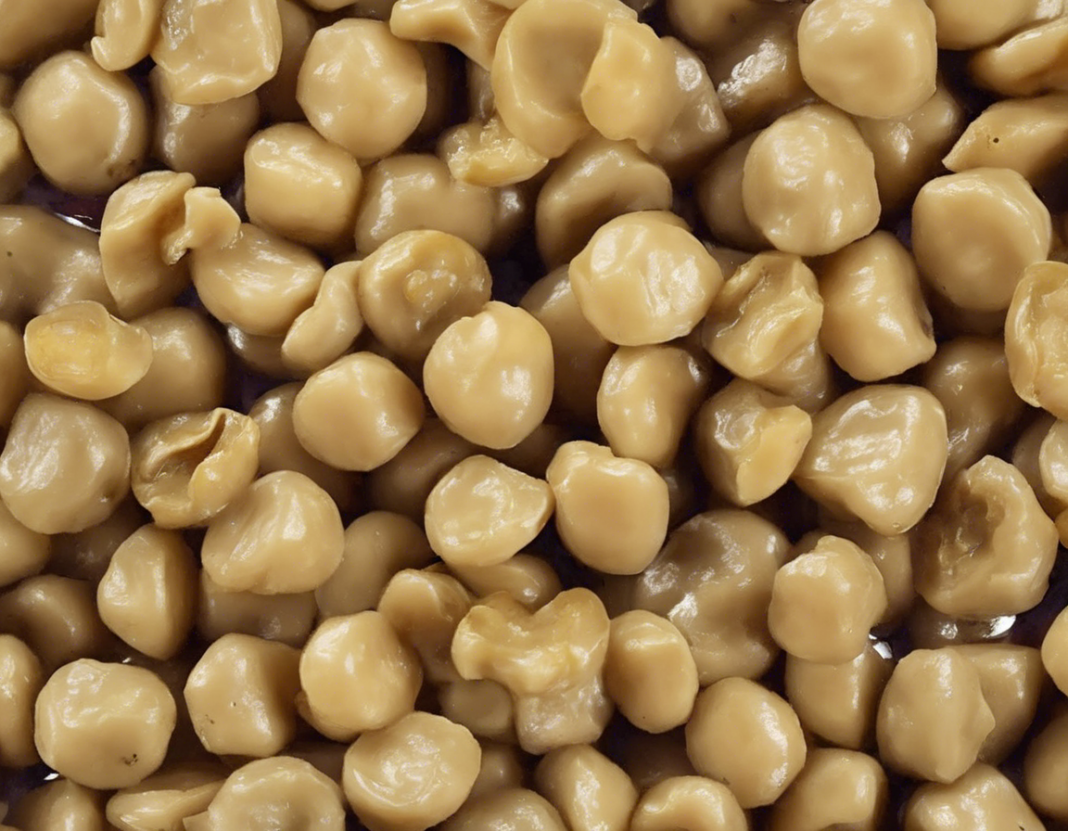Chickpeas, also known as garbanzo beans, are a type of legume that have been consumed for thousands of years and are a staple in many cuisines around the world. Not only are chickpeas delicious and versatile, but they also offer a wide range of health benefits. From improving digestion to reducing the risk of chronic diseases, these legumes are a powerhouse of nutrients that can support overall well-being. In this comprehensive guide, we will delve into the various health benefits of eating chickpeas and explore how you can incorporate them into your diet for optimal health.
Nutritional Profile of Chickpeas
Before we explore the specific health benefits of chickpeas, let’s take a look at their nutritional profile. Chickpeas are an excellent source of plant-based protein, making them an ideal choice for vegans and vegetarians. They are also rich in fiber, vitamins, and minerals that are essential for overall health. Here is a breakdown of the key nutrients found in chickpeas:
-
Protein: Chickpeas are a good source of protein, containing about 15 grams per cooked cup. Protein is essential for building and repairing tissues in the body.
-
Fiber: Chickpeas are high in fiber, with around 12 grams per cooked cup. Fiber aids in digestion, promotes bowel regularity, and helps maintain a healthy gut microbiome.
-
Vitamins and Minerals: Chickpeas are a good source of iron, magnesium, phosphorus, folate, and vitamin B6. These nutrients play vital roles in various bodily functions, including energy production, immune function, and bone health.
Health Benefits of Eating Chickpeas
1. Supports Digestive Health
Chickpeas are an excellent source of dietary fiber, which is crucial for maintaining digestive health. Fiber helps to promote regular bowel movements, prevent constipation, and support a healthy gut microbiome. Additionally, the fiber in chickpeas can help reduce the risk of digestive disorders such as diverticulitis and irritable bowel syndrome.
2. Regulates Blood Sugar Levels
Chickpeas have a low glycemic index, meaning they are digested and absorbed slowly, which helps prevent blood sugar spikes. This can be beneficial for individuals with diabetes or those at risk of developing the condition. The fiber and protein in chickpeas also aid in blood sugar regulation by promoting satiety and reducing the overall glycemic load of a meal.
3. Promotes Heart Health
Including chickpeas in your diet may help promote heart health and reduce the risk of heart disease. Chickpeas are a good source of potassium, which helps regulate blood pressure and support proper heart function. The fiber and antioxidants in chickpeas can also help lower cholesterol levels and reduce inflammation, both of which are risk factors for heart disease.
4. Aids in Weight Management
Despite being nutrient-dense, chickpeas are relatively low in calories, making them a great option for those looking to manage their weight. The combination of protein and fiber in chickpeas can help promote feelings of fullness and reduce overall calorie intake. Including chickpeas in meals may help prevent overeating and support weight loss efforts.
5. Supports Bone Health
Chickpeas are a good source of minerals such as calcium, magnesium, and phosphorus, which are essential for bone health. These minerals play a crucial role in maintaining bone density and preventing conditions like osteoporosis. Including chickpeas in a balanced diet rich in calcium and other bone-building nutrients can help support overall bone health.
6. Boosts Immune Function
The vitamins and minerals found in chickpeas, such as vitamin B6 and iron, are vital for immune function. Iron is necessary for the production of immune cells, while vitamin B6 plays a role in supporting various immune processes. Including chickpeas in your diet can help ensure that your body has the nutrients it needs to maintain a strong and healthy immune system.
7. May Reduce the Risk of Chronic Diseases
Consuming chickpeas regularly as part of a balanced diet rich in whole foods may help reduce the risk of chronic diseases such as heart disease, diabetes, and certain types of cancer. The nutrient content of chickpeas, along with their antioxidant and anti-inflammatory properties, can help protect cells from damage and support overall health.
How to Incorporate Chickpeas into Your Diet
Now that you are aware of the health benefits of chickpeas, you may be wondering how to incorporate them into your diet. Chickpeas are incredibly versatile and can be used in a variety of dishes, both savory and sweet. Here are some tips for including chickpeas in your meal planning:
- Roasted Chickpeas: Roast chickpeas with spices and herbs for a crunchy and satisfying snack.
- Hummus: Make homemade hummus using chickpeas, tahini, lemon juice, and garlic for a nutritious dip or spread.
- Salads: Add chickpeas to salads for an extra boost of protein and fiber.
- Curries and Stews: Include chickpeas in curries and stews for a hearty and nutritious meal.
- Baking: Use chickpea flour in baking recipes for a gluten-free and nutrient-dense alternative.
By incorporating chickpeas into your diet regularly, you can enjoy their health benefits while adding variety and nutrients to your meals.
Frequently Asked Questions (FAQs)
1. Are canned chickpeas as nutritious as dried chickpeas?
Canned chickpeas are still nutritious and convenient. However, dried chickpeas that have been soaked and cooked may contain slightly higher levels of some nutrients. If using canned chickpeas, choose low-sodium varieties and rinse them before use.
2. Can chickpeas help with weight loss?
Chickpeas can be a valuable addition to a weight loss diet due to their fiber and protein content. These nutrients can help promote feelings of fullness and reduce overall calorie intake, aiding in weight management.
3. Are there any potential side effects of eating chickpeas?
While chickpeas are generally well-tolerated by most people, some individuals may experience gas or bloating due to their high fiber content. Gradually increasing your fiber intake and drinking plenty of water can help alleviate these symptoms.
4. Can individuals with diabetes include chickpeas in their diet?
Yes, chickpeas can be a healthy choice for individuals with diabetes. Their low glycemic index and high fiber content can help regulate blood sugar levels. However, it’s essential to monitor portion sizes and carbohydrate intake as part of a balanced meal plan.
5. How can I reduce the gas-producing effects of chickpeas?
To reduce the gas-producing effects of chickpeas, you can soak dried chickpeas before cooking them, rinse canned chickpeas well, and gradually increase your fiber intake to allow your body to adjust.
In conclusion, chickpeas are a nutrient-dense food that offers a wide range of health benefits. By including chickpeas in your diet regularly, you can support digestive health, blood sugar regulation, heart health, and more. Experiment with different recipes and meal ideas to enjoy the versatility and nutritional value of chickpeas.


